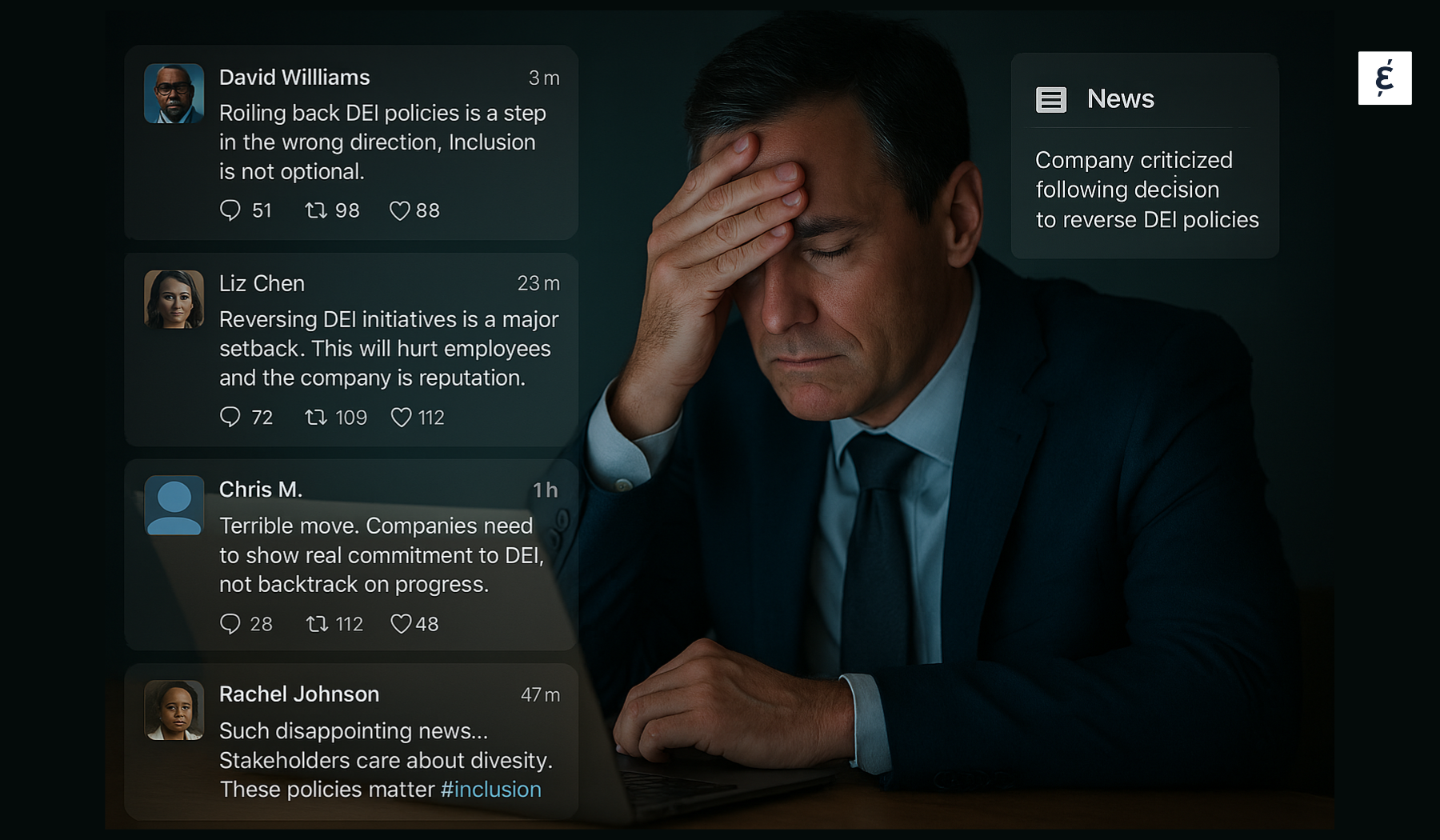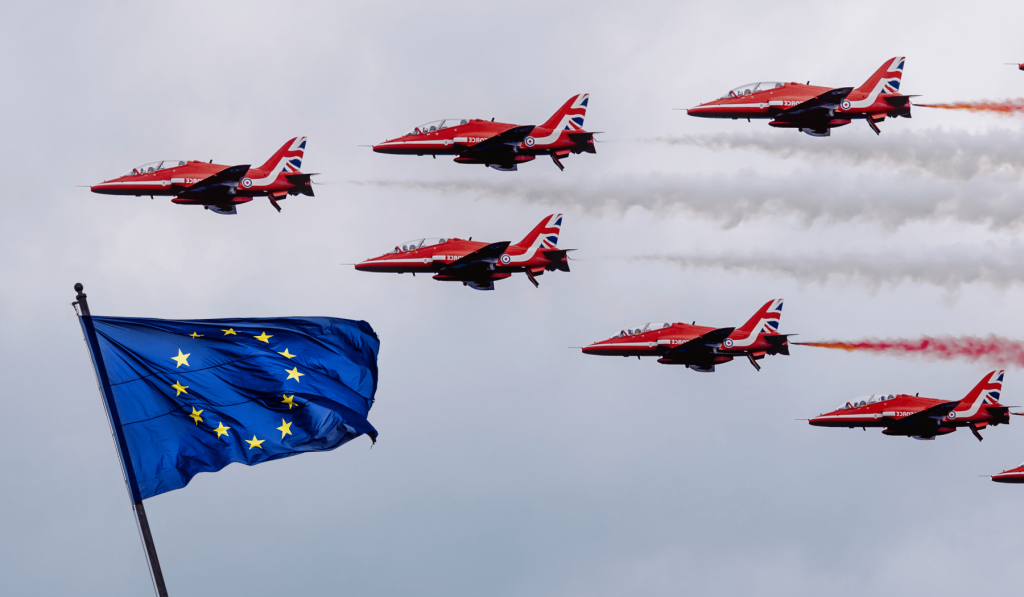

Amid growing talk of European rearmament — culminating in the EU’s groundbreaking €800 billion ReArm Europe Plan — the continent’s defense industry is experiencing a remarkable reputation transformation.
Our comprehensive study — examining the perceptions of 10 leading defense companies (Airbus, BAE Systems, Boeing, Dassault Group, Leonardo, Lockheed Martin, MTU Aero Engines, Rheinmetall, Rolls–Royce Holdings, and Thales Group) in France, Germany, and the UK — reveals a dramatic shift in stakeholder perceptions.
Even more striking is the change in perceptions among students — one that may echo the recent shift in interest among US graduates from tech giants to defense technology:
High-income respondents — a proxy for investors — showed even more pronounced optimism between Q4 2024 and Q1 2025:
Individual companies experiencing notable recent gains in their Trust & Like Score:
In March 2025, the European Union unveiled an ambitious €800 billion defense spending plan, dubbed the ReArm Europe Plan, in response to growing geopolitical uncertainties.
Emphasizing Europe’s commitment to taking greater responsibility for its security, European Commission President Ursula von der Leyen announced an initiative that includes €150 billion in loans to help member states modernize their military capabilities.
The strategic move comes amid increasing concerns about potential limitations in US military support, particularly following recent political tensions such as the war in Ukraine, long-standing pressure for European members of NATO to increase defense spending, and growing conversations within EU policy circles about “European strategic autonomy”.
Given those concerns — and the potential industry-wide implications of any rearmament plan — we wanted to understand its impact on the reputation of European defense companies.
Our research sought to capture the real-time sentiment shift by examining how key stakeholders — including investors, potential employees, industry analysts, and the broader public — are responding to this transformative moment.
We conducted a perception study focused on tracking changes in trust, brand awareness, leadership credibility, innovative capacity, and overall organizational relevance in light of the recent talk of the EU’s defense spending initiative.
Metric: Trust & Like Scores
Timeframe: Previous five months
Takeaway: There’s been a steady uptick in our chief reputational metric, which rises from 63 in autumn 2024 to 67 in spring 2025.
Metric: Awareness
Timeframe: Previous 12 months
Takeaway: Amid the steady drumbeat of coverage of the tensions between the US and Europe over Ukraine and NATO — exacerbated by the reelection of Trump in late 2024 — stakeholder awareness of defense companies in Europe has risen 7 percentage points in as many months.
Metric: Caliber’s standard brand and reputation attributes
Timeframe: In Q1 2025 (compared to Q4 2024)
Takeaway: Since last quarter, almost every brand and reputation attribute improved.
Metric: Brand and reputation among high-income respondents
Timeframe: Q1 2025 (compared to Q4 2024)
Takeaway: Among high-income individuals — a proxy for investors — the attribute scores grew even more in Q1. The Trust & Like Score rose four points, the Relevance score 10 points, and the Consideration rate 15 percentage points.
Metric: Brand and reputation among students/individuals enrolled in full-time education
Timeframe: Q1 2025 (compared to Q4 2024)
Takeaway: A recent headline in the Bay Area read: “Stanford students used to chase jobs at Meta and Google. Now they want to work on defense”.
Curious to see if something similar might be happening in Europe now, amid a similar change of “hearts and minds on campus” thanks to the “military tech gold rush”, we looked at the attribute scores in Q1 for students and others in full-time education.
The leaps are dramatic. The Trust & Like Score is up 13 points, Relevance is up 11 points. ESG scores are also up, and — to answer our initial query — the Employment rate has risen from 31% to 41%.
Metric: Employment rate among students/individuals enrolled in full-time education
Timeframe: Since December 2024
Takeaway: There has been a steady increase in interest in working in the defense industry in Europe in recent months.
We also wanted to see if individual companies had received a reputational bump. A handful saw a small rise in their Trust & Like Score (Airbus, Leonardo, Rolls-Royce), a couple saw a decline (MTU Aero Engines, Rheinmetall), and five saw a big rise. We show the development of those five companies’ scores below.
The EU’s rearmament plan has catalyzed more than a military modernization effort — it’s boosted the reputation of some of Europe’s top defense companies, and the sector in general.
© 2024 Group Caliber | All Rights Reserved | VAT: DK39314320